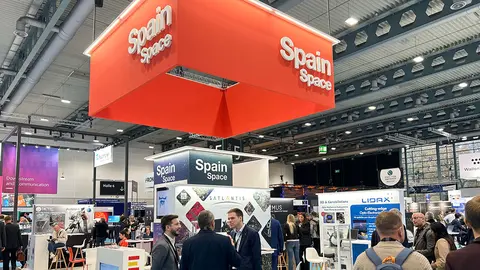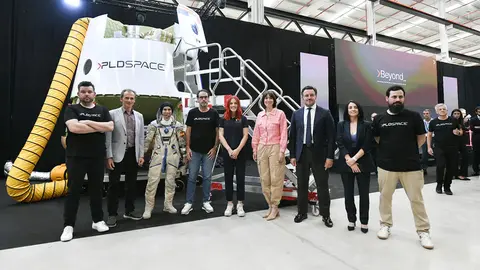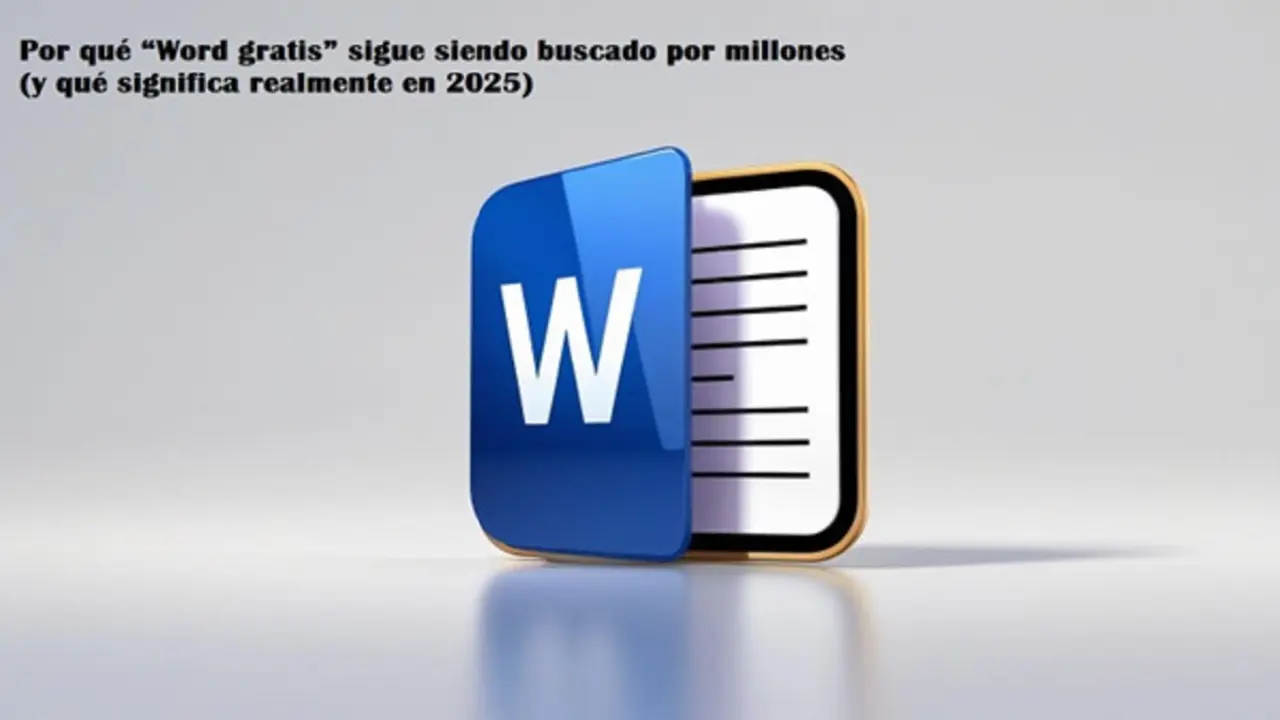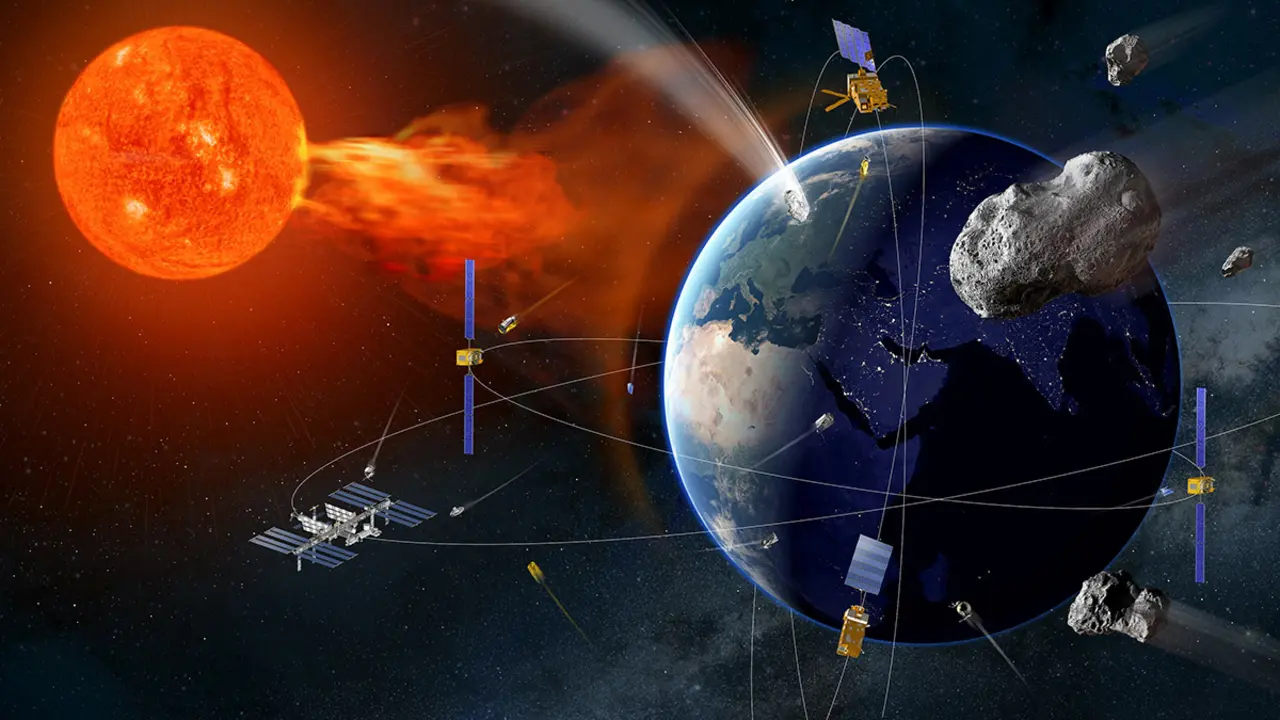OCCAM Space showcases its advanced technologies for deploying satellites in orbit
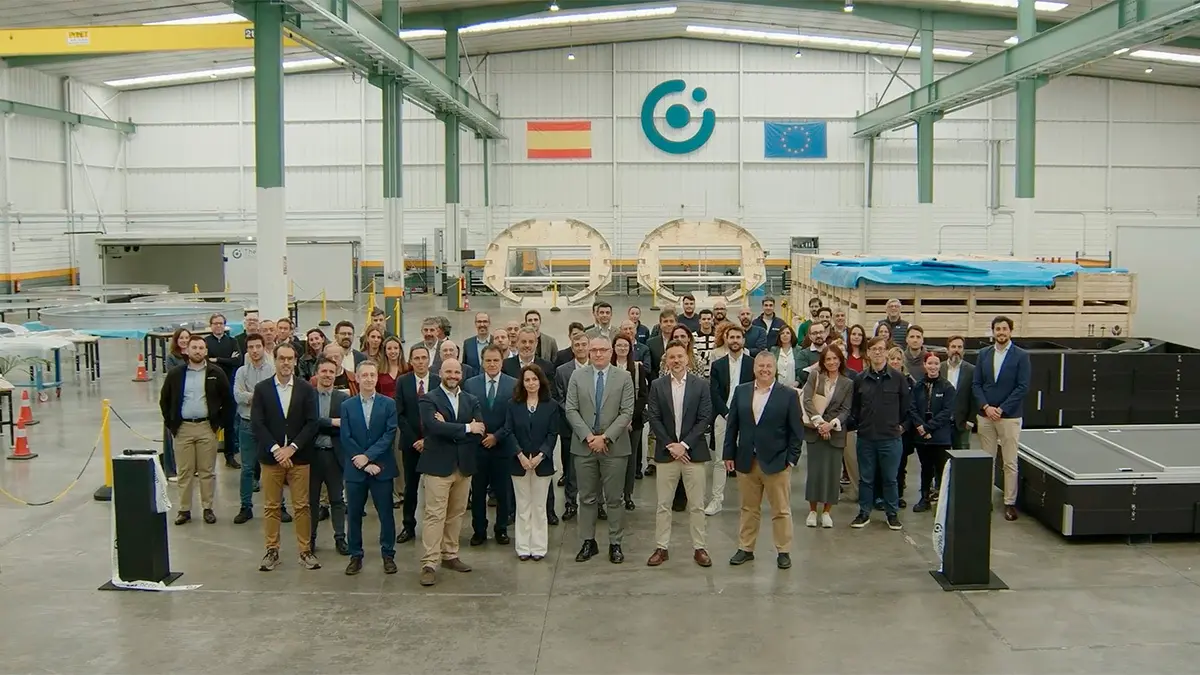
The executive director of the Spanish Space Agency (AEE), Juan Carlos Cortés, has just inaugurated the new factory of OCCAM Space, the only Spanish company specialising in the design, development and production of satellite separation systems in orbit.
A private company created in 2022 with 100% Spanish capital, the efforts of OCCAM's technicians are focused on bringing to fruition innovative, state-of-the-art satellite separation systems, which are the final link in any space mission that aims to position satellites and payloads of different sizes and weights in ultra-terrestrial orbit from different types and models of space launchers.
OCCAM's technological contributions to the success of space missions take the form of a new concept in the mechanisms that connect the launcher to the satellites travelling on board, which are the critical and customised element responsible for their correct positioning in orbit. ita.
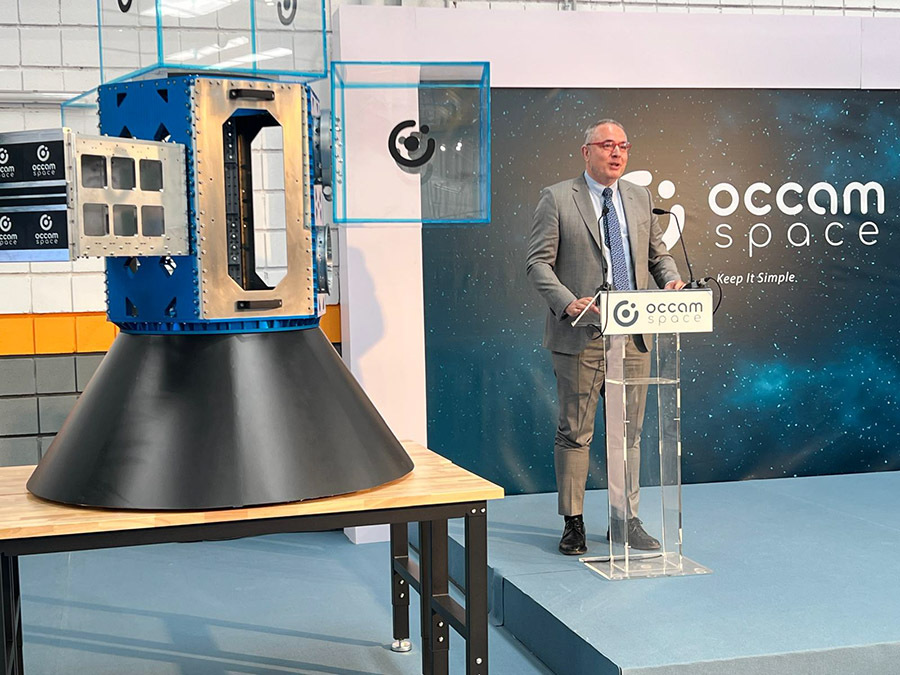
The success of its patented systems is based, explains Manuel Serrano, on the fact that the system ‘provides a solution that is independent of the size of the satellite, whether small, medium or large, which guarantees that it is held to the launcher in a uniform manner around its entire perimeter, simplifying and lightening the structures and solving the problems arising from integration into the rocket and deployment in space’.
The inauguration ceremony for OCCAM's new facilities in Coslada, a town located in Madrid's industrial belt, coincided with the first anniversary of the appointment of Juan Carlos Cortés as head of the ESA, who addressed the audience to highlight that ‘what OCCAM Space has achieved is a priority in generating the critical mass necessary for Spain to enjoy the strategic independence to launch the space activity of the future.
The Deputy Minister for Universities, Research and Science of the Community of Madrid, Ana Ramírez de Molina, was present at the event and spoke to highlight that the space sector is a ‘strategic area’ for the Community of Madrid, which supports OCCAM's business project, ‘which provides new technologies and applications based on simple and easy solutions, as expressed in the company's slogan’.
In search of global leadership
The head of the European Space Agency (ESA) responsible for new technologies in the Future Launchers Preparatory Programme (FLPP), Luis Escudero, also took the floor, emphasising that the Agency is committed to ‘accompanying companies in the transformation of the sector and in the commercialisation of their new products’. He concluded by saying that ‘one example is OCCAM, which works sensibly, knowing what it wants to do and how it wants to do it’.
OCCAM's CEO, Manuel Serrano, stressed that OCCAM's aspiration is to become ‘the world leader in separation systems for the space sector’, a goal that guides the efforts of the team. He also emphasised that they are confident of achieving this because launch service companies are aware that ‘of the dozen experts in the field at international level, four are in the company.
OCCAM's new facilities are located in Coslada, a town in Madrid's industrial belt. They occupy an area of 2,700 square metres and are adapted to carry out the engineering and manufacturing processes for the systems that hold satellites in place during their flight into space, but which must reliably eject them into outer space once they have passed through the upper layers of the atmosphere.

The newly inaugurated factory is a response to the substantial increase in recent years in commercial and institutional space flights worldwide, which has significantly increased the demand for reliable separation systems patented by OCCAM, making it advisable to expand the company's headquarters in Leganés, Madrid.
Based on OCCAM's patented separation technologies, its technicians have designed and developed several ranges of adapters, devices used to secure and stabilise satellites on board rockets and ensure that they travel in perfect mechanical condition to the point where they are launched into outer space.
The decades of experience accumulated by OCCAM's team in large companies in the national and international space sector has led the world's leading launch services company, the US-based SpaceX, to authorise the use of OCCAM's separation systems by companies that launch their satellites with Falcon 9, the rocket that leads the international space transport market.
Good prospects for the immediate future
The first export contracts for the company's systems date back to 2023 and are already in use on board Falcon 9 rockets. The first equipment travelled into space in 2024 and around twenty new separation systems will fly into space during the remainder of 2025. A second batch will place satellites into orbit in the first quarter of 2026.
OCCAM's product portfolio encompasses a broad family of separation systems, but also includes different modular solutions for the safe and mass separation of satellites and payloads in space. Among these, the MOSPA modular dispenser programme stands out, which stands for ‘Modular Solution for Payload Adapters’.
In February 2024, Spanish company PLD and OCCAM signed a contract with the European Space Agency's (ESA) Boost! programme, which is co-financing the development of the MOSPA dispenser with €1.3 million. Ezequiel Sánchez, president of PLD, was also present at the inauguration and stressed that his company wants to be autonomous in systems ‘with the capacity to deploy satellites and payloads travelling on board the Miura 5, such as the one both companies are developing in cooperation’.
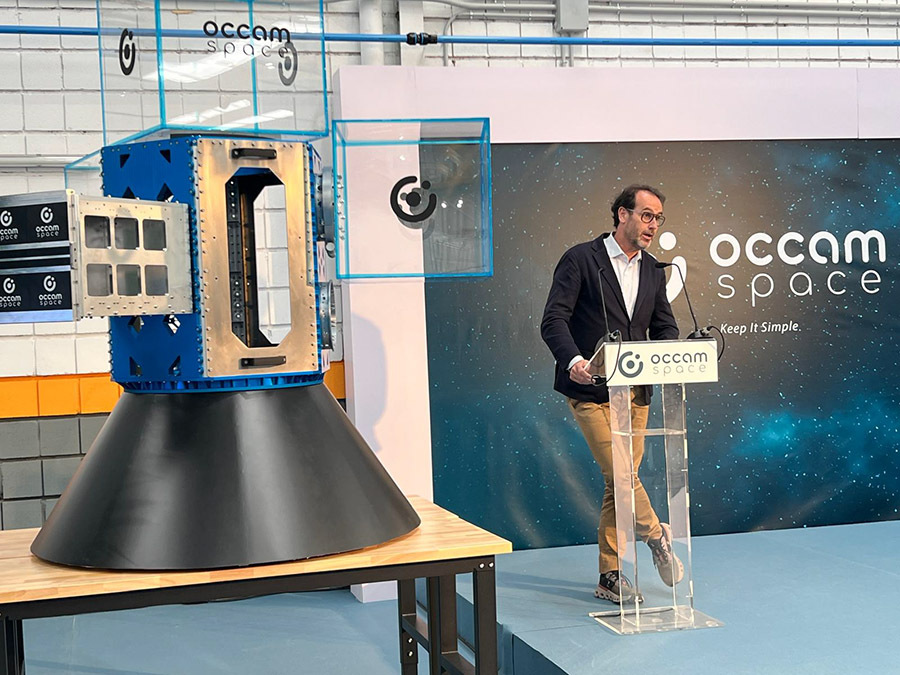
Lightweight and compact, MOSPA can accommodate up to 56 nano or micro satellites and position them in low Earth orbit simultaneously or sequentially in shared transport missions aboard small launchers, such as the Miura 5, a rocket currently being developed by PLD.
Manuel Serrano emphasised that the company's values are ‘governed by the pursuit of excellence and reliability in its products, by guaranteeing delivery times and by the agility to react in a timely manner to the demands of its customers.’ In short, OCCAM is committed ‘to efficiency and technological simplicity, which is reflected in the company's name itself.
It includes the AMIGO family, compact actuators that are a real alternative to pyrotechnic separation systems. Small, reusable, self-configurable and non-explosive, they are used, for example, for the deployment of solar panels, antennas and nanosatellites.


